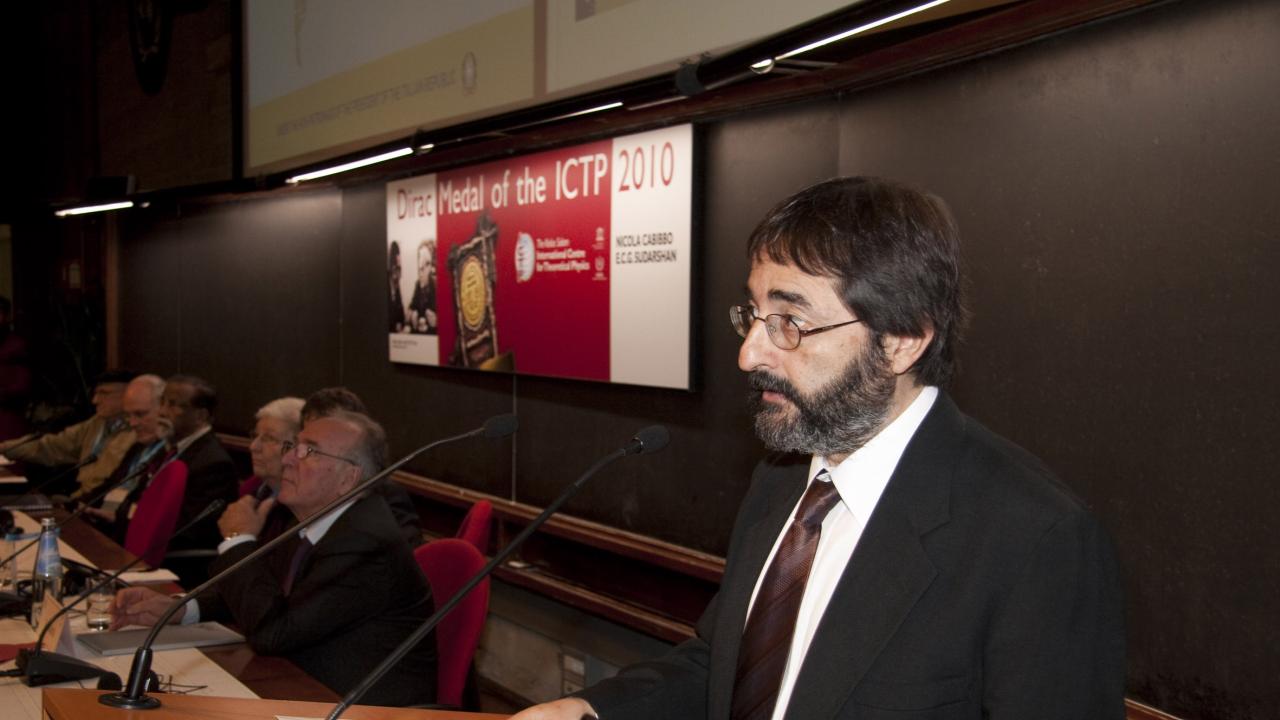
ICTP launched its 3-day, international science and policy
conference "ICTP After 45: Science and Development for a Changing
World" by announcing a new, five-year strategy aimed
at helping the Centre to better adapt to rapidly developing
geopolitical and technological changes.
"This strategy is really a vision for the future of ICTP," said
ICTP Director Fernando Quevedo, explaining that full implementation
of the plan depends on more funding for the Centre.
The strategy, which was developed by ICTP scientists, extends the
Centre's scientific activities in value and range, as well as
geographical extent, while reinforcing the necessary resources, and
developing the required outreach techniques. Although broad, it has
five specific priorities:
• establish a formal PhD programme as a natural
extension of the current Diploma programme;
• establish regional centres of excellence in
developing countries;
• strengthen existing research sections and add
new ones, particularly in energy and sustainability, quantitative
biology and computing sciences;
• develop improved internet-based techniques and
new e-learning methods to further supplement and replace the
traditional classroom;
• create a new Institute Advancement Office
(IAO) that would seek new funding and support opportunities.
The strategy announcement was followed by an awards ceremony for
this year's Dirac Medal winners Nicola Cabibbo (posthumously) and
Ennackal Chandy George Sudarshan. Nobel Laureates David Gross and
Walter Kohn presented the awards to Cabibbo's widow and
Sudarshan,
Gross later delivered a keynote speech on "The Future of Science",
which focussed on the importance of basic science for all
countries. "Basic science is at the heart of ICTP, and is in
incredibly good shape, because there are so many fascinating
questions that we are on the verge of answering," he said.
A second keynote speech by Jacob Palis, president of the Academy
of Sciences for the Developing World (TWAS), focussed on "The
Importance of Science for Developing Countries".
"The poorest countries generate less than one percent of science
articles in peer reviewed journals, but account for one fourth of
the world's population. We need to continue efforts to shrink this
gap between scientifically capable countries and scientifically
lagging ones by designing special activities, instruments and
initiatives to deal with this very difficult problem to reach Least
Developed Countries, said Palis.
















